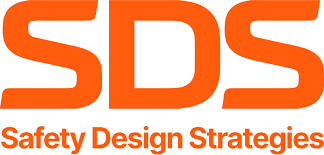As part of the above standards, our Forklift Safety Training will see participants participate in an extensive review of the following elements:

As part of the above standards, our Forklift Safety Training will see participants participate in an extensive review of the following elements:
The legal stuff
Understanding the legal requirements for operating lift trucks in Ontario
Understanding the hazards of working with lift trucks
Time is taken to discuss with participants the main contributing factors to accidents, incidents or near misses involving forklift equipment.
As part of that discussion, we go into detail the top 4 hazards associated with the operation of a lift truck which are:
The people factor– how people contribute to accidents or incidents
The equipment we operate – do we understand it, do we have the right equipment?
The environment we work in and
The materials we move – do we know elements like weight and balance?
Understanding your lift truck
A discussion on the need to inspect your lift truck and what to look for
Lift truck stability triangle and trapezoid, the center of gravity load, the capacity of your lift truck or forklift
The effects of speed, acceleration, sharp cornering, etc.
Main components of the lift truck with an emphasis on the lifting/handling systems and their basic functions
Fueling of a lift truck including Propane, Diesel and Batteries (If your forklifts use propane, your operators are required to undergo training in the safe use and handling of propane cylinders and Propane Cylinder Exchange under TSSA standards)
What are the rules for operating a lift truck?
This is where we discuss the specific rules that should be followed when operating a lift truck. Our focus will be on what rules would apply to your work environment. This may see the trainer creating a “Safety Rules To Follow” sheet where he/she would pull from the participants the rules that they agree need to be followed by forklift operators. This is a workshop that encourages participants to follow the safety rules as defined by themselves.
Practical Evaluations
It is essential that the participants are evaluated on the forklift equipment they would be expected to be used in the environment they will be working in. This is not a driving test where people will pass or fail but more of an evaluation of the operator’s skillset at the time of the evaluation.
Some businesses may have different types of forklift equipment and require operator evaluations on each piece of equipment. As part of our standard forklift safety training, it includes an operator evaluation of one piece of equipment. Additional charges may apply if more than one piece of equipment is evaluated.
In the case of participant(s) are attending one of our public training sessions, arrangements will be made that would see the trainer attending your workplace to perform the operator evaluation on a separate date. Again, this is included in the price of the course.
If person(s) are attending one of our public training sessions and are not currently employed by a business, we do not have lift trucks on-site to practice on or to conduct an operator evaluation. However, we will provide you with a certificate indicating that if you get a job at a business, that we will send a trainer to that business and conduct an operator evaluation on your skillset and provide your employer with a record of training and documentation supporting the training that you have received. Again, this is no cost to your new employer.
SDS is the leading provider of safety consulting, inspection, and rescue services across Canada. We make safety a competitive advantage by prioritizing your company's safety program and creating safer spaces for your team to thrive. Our team of safety professionals is prepared to handle the country’s most difficult safety challenges.
Our Mission
To effectively communicate and implement safety strategies that save lives, provide a safe environment for workers, and ensure our clients are in compliance with Ministry of Labour safety requirements.
© 2025 coursetakers.com All Rights Reserved. Terms and Conditions of use | Privacy Policy